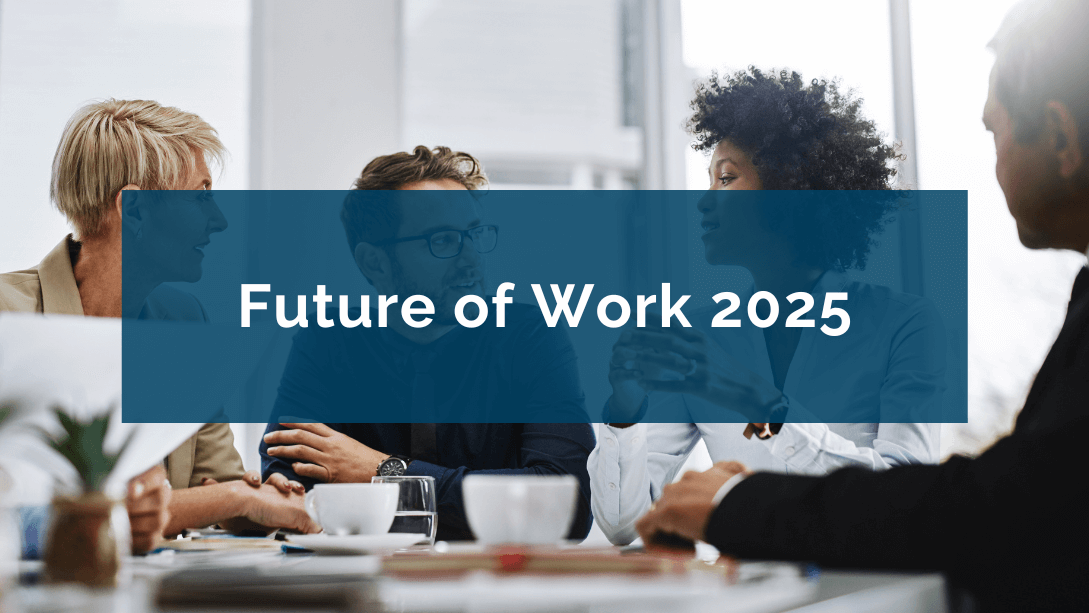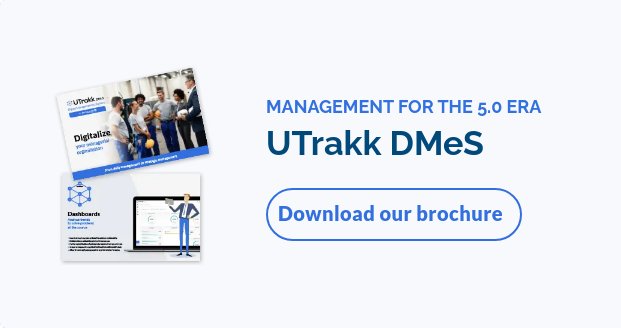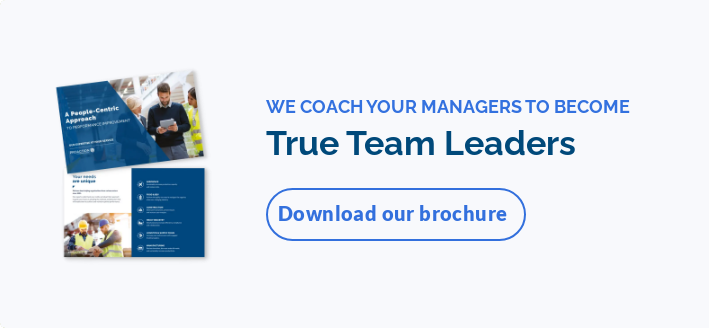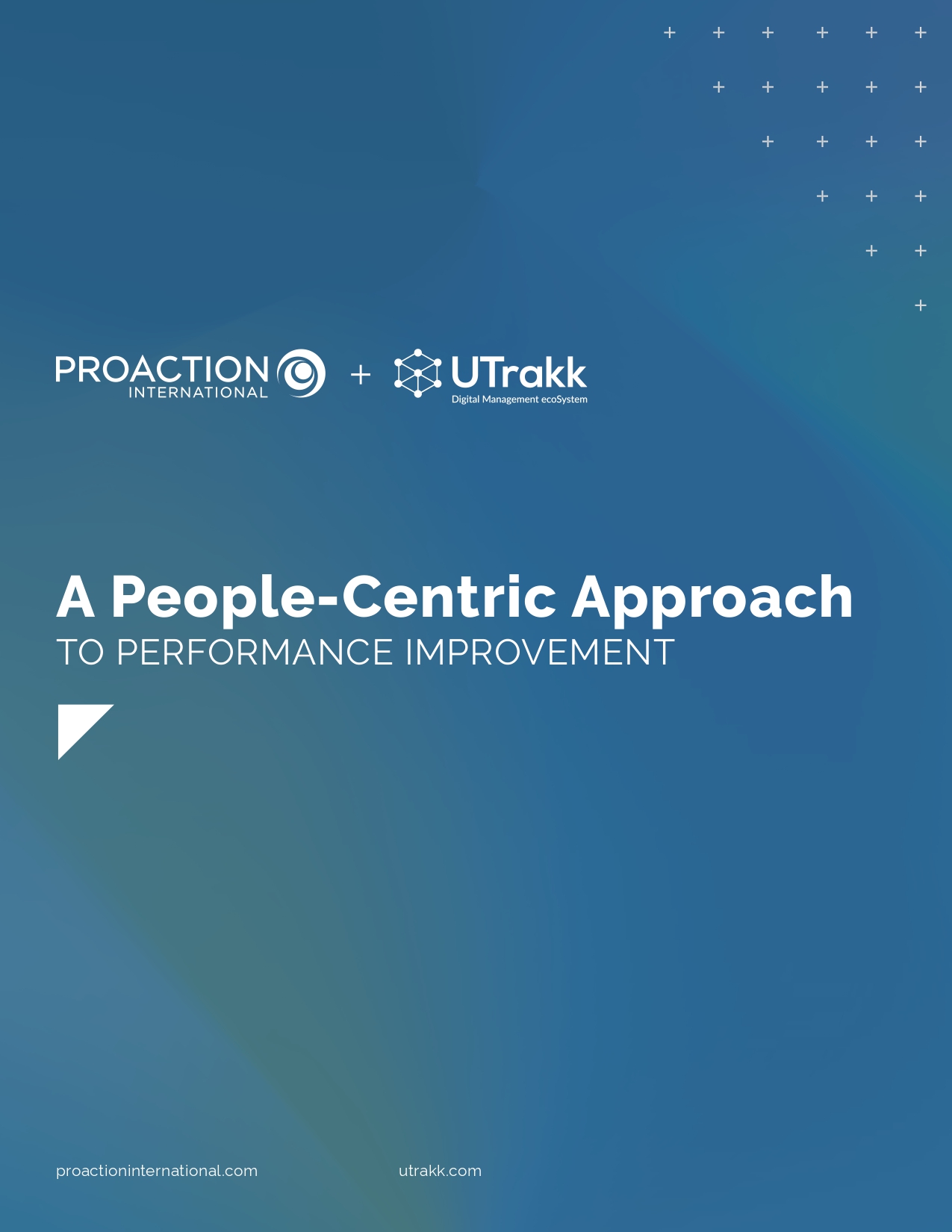
1. Artificial intelligence and Industry 5.0 technologies
The impact of emerging technologies on the work of employees
2025 will mark a more massive adoption of artificial intelligence and Industry 5.0 technologies (cobots, advanced AI systems, augmented reality, virtual reality, etc.).
Unlike Industry 4.0, the 5.0 version emphasizes collaboration between humans and machines toward a common goal. Rather than a replacement, AI acts as an ally to workers. Eliminating tedious tasks enables them to concentrate on higher-value-added missions.
However, this evolution also brings challenges, such as training in new technologies, adapting to constant change, and the potential risk of dependency on these automated systems.
Next-generation collaborative tools
Next-generation collaborative tools are profoundly transforming the way teams work. Platforms such as Notion or Microsoft Copilot are redefining productivity by integrating intelligent functionalities directly into users' daily activities.
These AI tools are particularly relevant in hybrid working, where coordination and efficiency must be maintained despite distance. They help create a more agile and connected professional environment.
2. Importance of soft skills
According to a LinkedIn study, 92% of talent acquisition professionals reported that soft skills are equally or more important to hire for than hard skills.
Business-critical human skills
Soft skills include collaboration, problem-solving, empathy, emotional intelligence, creativity, etc. Unlike technical abilities (“hard skills”), they are linked to emotions and interactions between individuals and cannot be imitated by machines.
Another advantage of soft skills is that they promote adaptability, good relationship management, and well-being, all of which are strong trends in today's working environment.
Studies show that people with these abilities are better able to solve problems, work effectively in teams, and adapt to change.
In a changing and uncertain environment, where complexity and unpredictability dominate, emotional intelligence is essential to help managers maintain the performance of their teams while cultivating a healthy, agile, and motivating work environment.
Samuel Tamagnaud, Executive Vice President, Morgan Philips Group
Perfecting soft skills
Given the growing importance of soft skills, many businesses are investing in tailor-made programs to strengthen them. These initiatives include interactive workshops, simulations of real-life situations, or individual coaching sessions tailored to employees' specific needs.
These personalized approaches help perfect soft skills and ensure their immediate, practical application in the workplace.
In addition, dedicated digital tools can considerably enhance behavioral skill development. For example, the UTrakk platform enables managers and employees to collaborate more effectively by improving the quality of their exchanges through collaboration features that structure communication touchpoints, centralize information, and track tasks.
3. Leadership development
Given their expanding roles as mentors, guides, and organizational interpreters, managers need education, upskilling, and soft-skill training to lead a global workforce facing unparalleled change.
Already at the top of the list in 2024, developing leadership skills remains at the heart of work trends concerns this year. It has to be said that business leaders' ability to communicate a clear vision, motivate, inspire, and establish a climate of trust is essential if every team member is to feel involved. A good leader not only knows how to direct but also how to recognize and value the contributions of his or her colleagues, thereby strengthening their sense of belonging and their commitment to the company's projects.
Transformational leadership
Today's employees seek leaders who demonstrate empathy, transparency, and authenticity. They want to be guided by individuals who understand their challenges and know how to support them in their professional development while remaining accessible and human.
Millennials and Generation Z don't want bosses; they want coaches.
Gallup, It's the Manager
Faced with these new expectations, managers must move from supervisors to mentors. The time has come for transformational leadership, a particularly relevant approach in a climate where employees can feel overwhelmed by new tools, technologies, and processes.
Leadership development becomes a question of competence but also a question of heart and human understanding.
Leadership development practices
- Coaching and mentoring enable business leaders to benefit from constant feedback and develop their behavioral skills.
- Continuous learning helps them stay current and effective by providing regular training programs on various topics (change management, emotional support, new technologies, etc.).
- Leadership development programs allow participants to cultivate specific skills, such as strategic vision, emotional intelligence, and crisis management.
4. Personalized employee journey
Rather than offering fixed career paths, companies increasingly turn to customized approaches to meet each worker's unique ambitions and strengths.
Ways to personalize the employee's career path
- Customized training and coaching: Offer programs tailored to employees' development needs, including hands-on training, digital learning, or targeted coaching sessions.
- Internal mobility: Enable employees to change roles or departments to explore new responsibilities and maximize their potential.
- Personalized coaching: Set up regular follow-ups with managers or mentors to help employees achieve their goals.
Contribution of technology and data analytics
The personalization of the employee journey is increasingly supported by technology and data analytics. Thanks to advanced tools, companies can gather and analyze information on each employee's skills, performance, and aspirations. This information can be used to design tailor-made career development plans, adapted to individual needs while meeting organizational objectives.
For example, intelligent platforms can recommend specific training courses or suggest internal mobility opportunities based on an employee's strengths and preferences. This approach strengthens employee commitment and optimizes their long-term potential.
In a Pulse of Talent survey, 49% of respondents said they wanted to bring skills to new projects from their current role. This was followed by 43% of those interested in a new role in another department or team. Finally, 35% of those questioned said they wanted to change careers within their company.
5. Employee well-being
In a Deloitte survey of Generation Z and Millennials, most respondents consider mental health support and policies very important when considering working for a new company.
Well-being is a workplace strategy that concerns employees' overall psychological and physical health. Long ignored or considered a bonus, it's now a must.
The link between well-being and commitment
According to a Gallup study, companies that invest in well-being see a 21% higher employee engagement rate than those that do not.
Since last year, the importance of mental health and recognition of employees' needs has increased. Why this change? An employee in good psychological and physical health is more involved, more productive, and less likely to leave his or her job.
Recognizing employees
Employee recognition is an essential component of well-being at work. It plays a significant role in boosting motivation, which in turn can enhance productivity and performance.
Creating a workplace culture of appreciation also helps improve relations within the team, encouraging collaboration and support.
Flexibility as a central pillar
The key to attracting and retaining an IM workforce will be structuring work to better fit the lifestyle demands of a new generation of workers.
Flexibility also occupies a central place, enabling employees to achieve a better work-life balance by having more control and autonomy over their working hours.
The prominent examples are :
- Remote work: Enabling employees to work remotely whenever possible.
- Flexible schedules: Offering the possibility of adjusting working hours to suit personal constraints.
- Unlimited time off: Some employers offer unlimited time off to give employees a sense of responsibility for their time and well-being.
Physical and mental health resources at work
- Psychological help programs: Provide free or subsidized access to mental health resources.
- Creation of relaxation areas: Provide on-site areas where employees can rest and recuperate.
- Physical and nutritional activities: Organize on-site sports activities and promote healthy eating, such as offering fresh fruit in the office.
For some sectors, such as manufacturing, this means offering solutions tailored to operators' needs, such as à la carte schedules or shift rotations to reduce physical fatigue.
6. Diversity, equity, and inclusion (DEI)
According to Culture Amp, HR decision-makers believe that greater inclusion of underrepresented minorities would help across a range of issues, including:
- Retaining and attracting talent (66%).
- Fill skills gaps (63%).
- Better corporate performance (60%).
In 2025, organizations must ensure that all employees feel included and respected.
Diversity means ensuring that various people (ethnic origin, gender, age, sexual orientation, physical abilities, etc.) are represented within a team and company.
Meanwhile, equity aims to provide fair and appropriate opportunities for everyone, considering different individual needs to ensure fair treatment.
Finally, inclusion aims to create a working environment where every individual feels valued, considered, and able to contribute.
Benefits of an inclusive approach
Quite apart from the purely human aspect, applying DEI principles at work guarantees performance. Inclusive companies demonstrate a superior capacity for innovation and organizational agility. The result? More creativity, a better understanding of different markets, greater talent satisfaction and retention, and a positive brand image are also needed.
Key DEI programs
Implementing programs that actively promote an inclusive culture and combat discrimination is vital.
Here are a few examples:
- Training against unconscious bias: Make employees and managers aware of implicit biases to reduce them.
- Promoting resource groups: Creating groups for people from under-represented backgrounds to provide support and community.
- Fair recruitment processes: Implement recruitment practices that eliminate bias and ensure equitable representation.
7. Sustainability and ethical work practices
Tomorrow, employee retention and attraction will be driven by organizations' ecological and societal impact.
Franck Chéron, Human Capital Consulting Partner, Deloitte
In 2025, organizations must ensure their activities respect the environment and fundamental ethical principles to attract and retain talent.
The importance of sustainability and ethics for business
- Consumer pressure: Today's consumers are increasingly informed and aware of environmental and social issues. They prefer to transact with companies that share their values.
- Attracting talent: Millennials and Generation Z favor organizations with a strong social and environmental responsibility culture, which they perceive as responsible and inspiring.
- Regulatory compliance: Adopting ethical and sustainable practices enables you to comply with increasingly stringent standards and avoid penalties.
- Long-term resilience: Organizations that integrate sustainability into their strategies are better prepared for future risks related to resource scarcity, climate impacts, or regulatory changes.
Best sustainability and ethical practices
- Choose suppliers who meet strict environmental standards and prefer recycled or renewable materials.
- Implement practices to reduce carbon footprint (e.g., optimizing production processes, using renewable energy sources, reducing overall energy consumption).
- Avoid all forms of exploitation, guarantee safe and fair working conditions, and ensure local communities benefit from the company's support.
- Communicate transparently on sustainability objectives and results.
- Engage in initiatives supporting sustainable practices, such as participating in reforestation programs, local community projects, and adopting measures to reduce waste.
Embracing future work trends for a positive, high-performance corporate culture
These work trends for 2025 invite us to reflect on the balance between technology and people in the world of work. Integrating AI, focusing on well-being, developing soft skills, developing leaders, DEI, ethics, and personalizing career paths are all strategic imperatives for modern companies. They are great strategies for building operational excellence while meeting the new expectations of employees and stakeholders.
Managers gain an undeniable competitive edge by positioning themselves as forerunners on these trends. They attract and retain the best talent and benefit from a greater capacity for innovation, flexibility, and resilience.
Adopting these trends now means choosing to make your company more efficient, humane, committed, and respectful of societal and environmental values. Are you ready to take on the challenge?










